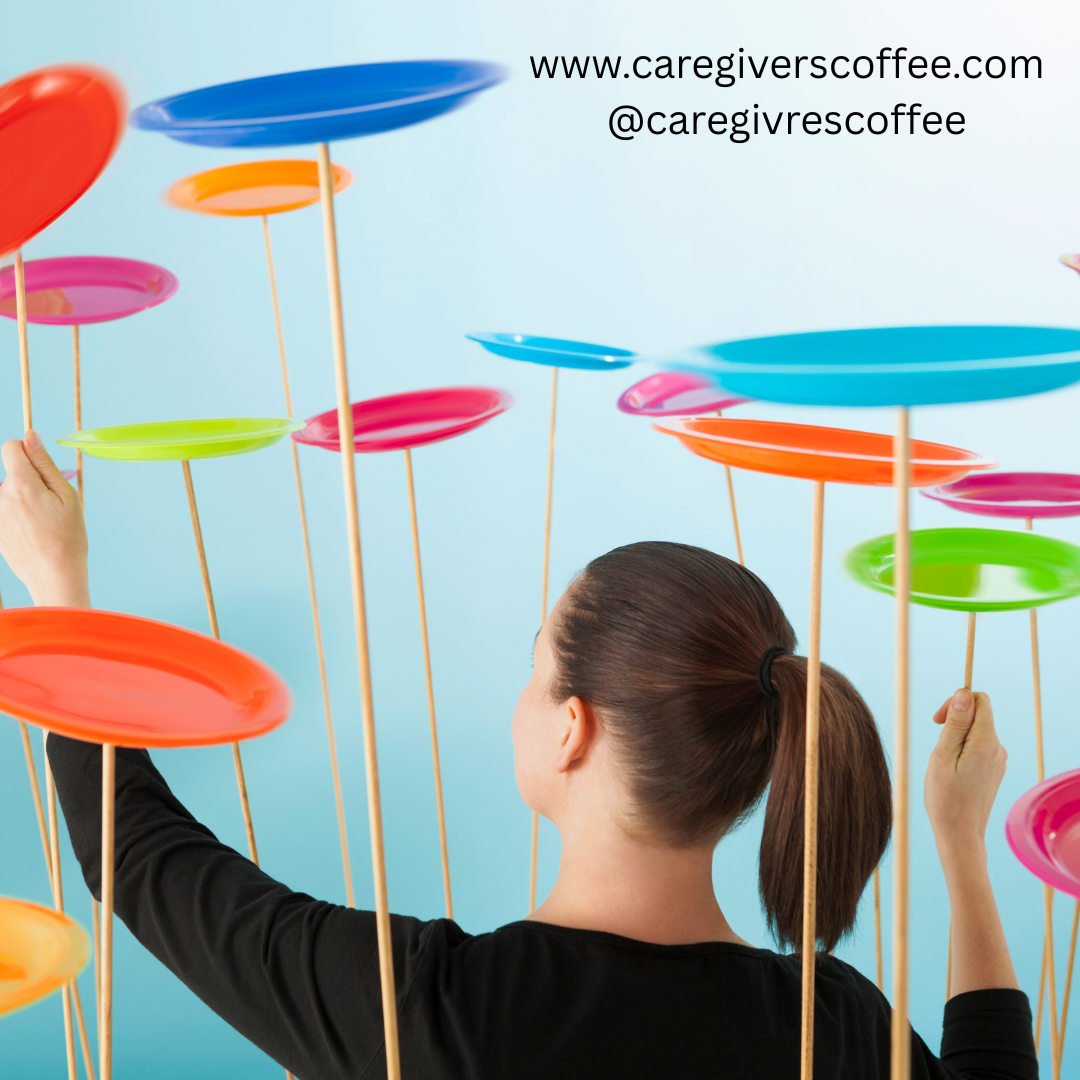The Link Between Task Switching, Mental Overload, and Caregiver Burnout.
What if the thing you thought made you strong—multi-tasking—is the thing burning you out?
As caregivers, especially in the sandwich generation, you’ve been told that juggling everything is part of the job. You’re cooking dinner while managing your parent’s medication refills and helping with homework while mentally running through upcoming appointments. Multi-tasking is often proof that you’re capable.
But multi-tasking isn’t a superpower: it’s a setup for exhaustion.
The Science Is Clear: Multi-tasking Doesn’t Work
Our brains aren’t designed for multiple complex tasks at once. What we’re doing is task switching—moving rapidly from one thing to another. Every switch costs mental energy.
According to the American Psychological Association, multi-tasking reduces productivity, increases mistakes, and adds significant mental strain. It’s not saving you time—it’s silently draining your focus and well-being.
For caregivers, who already carry an invisible mental load, that constant shifting wears down your clarity, memory, and mood.
The Hidden Cost for Caregivers
If you’ve ever:
• Walked into a room and forgotten why,
• Snapped at your partner or child over something small,
• Felt like you were “busy all day” but accomplished nothing—
…you’re likely experiencing the fallout of task overload.
The Family Caregiver Alliance reports that most caregivers—especially women—experience high levels of emotional stress, and many don’t even identify as caregivers until they’re already overwhelmed. That invisibility adds another layer of pressure.
Reframing the Narrative: Focus Is the Real Superpower
Doing one thing at a time may feel impossible when managing so much. Here’s the gentle truth:
Single-tasking isn’t lazy, it’s powerful.
It gives your nervous system a break and lets your thoughts settle. Single-tasking creates space for the things that matter—like hearing your child’s full story or having a calm conversation with your parent.
Instead of pushing harder, what if you practiced doing less at once but more intentionally?
One Small Step to Reduce the Overwhelm
Something simple you can try this week:
Set a 15-minute timer and focus on one caregiving task—just one.
No texts, no dishes, no emails. You will be tempted, because most of us believe that if we do one thing at a time, we will get “behind.”
Just 15 minutes of doing what you need to do with your full attention. You might be surprised how grounding it feels to focus fully.
🔄 The Connection to Caregiver Chaos: A Way to Shift into Sustainabilit
One of the biggest sources of mental overload is the clutter we carry in our heads: you’re trying to remember everything related to your loved ones’ care.
Appointments, medications, insurance details, emergency contacts, passwords—it’s a lot.
This is exactly why I created the Family Health Organizer; the same system I use to get my family and friends’ medical information organized. For so many years, my mom kept this essential information on scattered sticky notes. This is a real-world system for organizing medical info at home.
It’s designed to help you:
• Organize the chaos you’ve been carrying in your mind
• Create an easy system that works for daily caregiving and emergencies
• Breathe easier knowing the info you need is right where it should be
👉 Get access by signing up for our newsletter:
https://caregiverscoffee.myflodesk.com/opr49idrl3
Because simplifying isn’t just helpful—it’s healing.
💬 Final Thought
Multi-tasking feels like the easiest solution to the complexity of your day. If you could just “get ahead”, then you could have some time for yourself. We have all prided ourselves on being master multi-taskers. Here is something that took me a long time to realize: we’re operating in a system that glorifies burnout.
Let’s start replacing the myth of “doing it all” with something more sustainable: doing what matters, with care.
If you want to read more, here are a few sources that are helpful. I hope this serves you.
📝 References
1. American Psychological Association. Multitasking: Switching costs.
https://www.apa.org/research/action/multitask
2. Family Caregiver Alliance. Caregiver Statistics: Demographics.
https://www.caregiver.org/resource/caregiver-statistics-demographics
Leave a Reply to Tania Mehta Cancel reply
This step-by-step guide helps you create a reliable medical record system -so you can stay organized.

Thank You for Your Support!
Thank you Laura for joining me as we figure out sustainable caregiving together.